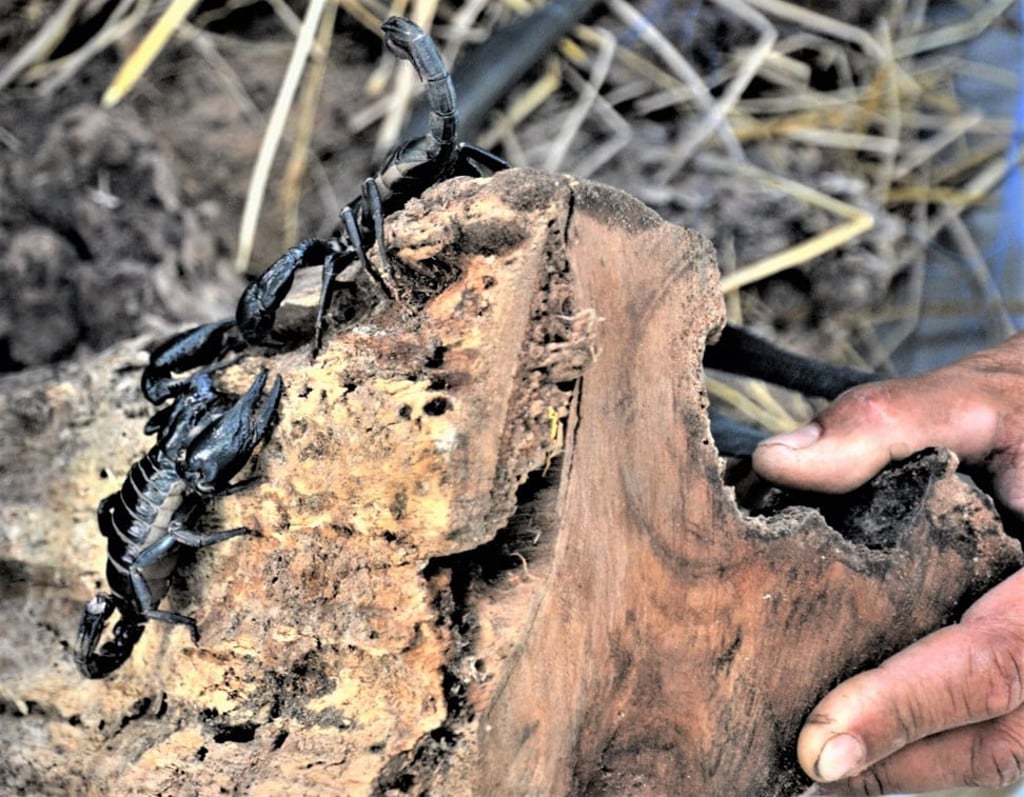Meet Thailand’s fearless scorpion hunters who feed demand from villagers and selfie-loving tourists
- In northeast Thailand, scorpions are regarded as a delicacy. The arachnids are viewed as both food and medicine
- To help meet growing demand from restaurants and street vendors, one man has decided to start breeding scorpions

Crickets, grasshoppers, bamboo worms and giant water bugs are among the most popular deep-fried creepy-crawlies that bemuse foreign tourists at markets in the Thai capital, Bangkok. However the most exotic and impressive creature, beloved by the adventurous selfie taker, is the large black scorpion.
It takes a braver man to catch them, though.
To an untrained eye, the patch of earth that Somporn Saisuwan selects for closer inspection in a wooded area in northeastern Thailand’s Surin province may appear nothing out of the ordinary. A carpet of dry leaves and clumps of ferns cover the ground on slightly sloping terrain. But it’s a rotting log that catches Somporn’s eye.
He turns it over to see what creatures could be lurking beneath.

“You might find scorpions clinging to the underside of a log,” the villager explains. “If you don’t, you should look for small holes in the ground.”
If a hole is round, it’s advisable to move along, because a snake might be coiled up inside. If the opening has a flatter elongated shape, though, the inhabitant could be a giant Asian forest scorpion, a forbidding arachnid that often burrows into the ground during the dry season.